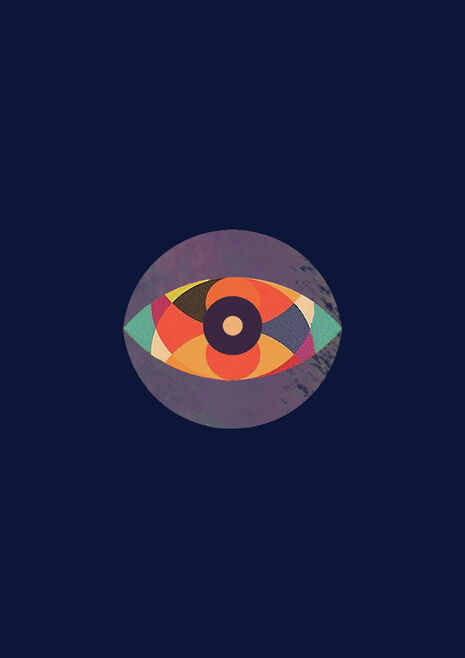Cambridge Shorts review
Carlotta Wright was impressed by the student film making on show at this annual event

Last night Cambridge Shorts was back in its ninth installment. In the beginning, though, it felt rather like I was watching its debut. The audience spent about ten minutes in confusion, as a film seemed to have started playing while the lights were still up. One audience member whispered, “When’s it going to start?”. The Shorts did finally find its feet throughout the night, however. The animation of the hosts, Tom Nunan and James Coe (Maria von Snatch), by Eve Gatenby, set an impressively high standard for the night but felt wasted. Nunan and Coe’s rapport sometimes felt dissonant and flat, when juxtaposed with some of the more serious films. In the little time they had to get into the feel of their roles, they received volumes of laughter from the audience. The in-jokes about Cambridge ‘thesps’, a pitfall at every Shorts, did more to perpetuate Cambridge film exclusivity than criticize it. However, this term there was a greater effort to display a variety of styles from a variety of student filmmakers.
"What was consistent throughout was the raw talent and love for film"
The arrangement of, and transition between, these various films were seamless and the first film, Haze, by Daria Hupov, set a beautiful tone. Hupoy’s experimentation with lighting was tender and professional. The premise of the film was a music video, in which the expertly synchronized and directed dance movements, at its peak, were mesmerizing. A beautiful showcase of seamless editing, frames and colours, Haze was an ambitious project executed near-perfectly.
We moved onto the second film: Queer Voices in China by Lucy Gilder. For a documentary shining a light on the Chinese underground gay community, we never saw their faces. Shrouding them in anonymity may have been an artistic choice, but one I would like to have had explained. The filmmaker’s gaze seemed preoccupied instead with the aesthetics of China. Relying on visuals rather than the strength of the accounts was a real disservice to the film's subjects. When there was cohesion between visuals and speech – such as when we saw the gay bar, 'Underground', while someone talked about their experiences there, it was lovely to see.
Rowan Hall Maudslay’s Monty Python-style Lionguard, about a knight on a quest, knew its target audience well and elicited lots of laughter from the very start with its stylized opening credits. At times, it felt the film was just a showcase of all the editing techniques and fighting choreography that could be packed in, at the expense of a clearly-conveyed storyline. A slick sketch, it knew its limits and did not stretch itself too hard.
Hourglass. A beautifully poignant film on the subject of grief was conceived of a collaboration between 'Notes' (direction by Laura Baliman) and 'CFA' (poem by Scott Partington). The highlight of my evening was this poem which was beautifully written and moving. It was further strengthened by the narrator who was able to carry the emotional weight where sometimes the cinematography could not. However, the student talent in a film with such a small cast, crew, and budget, is admired.
The penultimate film, Seabirds, by Joshua Harris, failed to find its feet. The cinematography was stunning and the music choice apt, reminiscent of a BBC wildlife film. The homemade feature gave it life, but at times, when clips of birds were a little too long and the sound was difficult to understand, was detrimental. On hearing misplaced laughter, I couldn’t help but wonder whether the audience at Shorts was the wrong one for this film. In any case, the tremendous effort of this amateur wildlife documentary was appreciated, and the beautiful underwater shots, intricate script and pure passion for nature elicited sympathy from the audience.
The last film gave us food for thought. Zeb Goriely, in A Day in the Mind, creates a conversation on mental health and how to survive a Cambridge term. Special credits should be given to the composer, Iona MacPherson, who created an arrestingly beautiful score. The special effects were especially captivating. However, it did feel like the balance between a grounded account of mental health and the film’s stylized aesthetics wasn’t quite achieved. Goriely’s decision to make the pace of the video slightly too fast imitates the fast pace of the Cambridge lifestyle but prevented the audience from really digesting the important dialogue.
The hard work, time, and effort put into Shorts is truly astounding. The event is, and will always be, a difficult night to pull off. Typical student and budget problems revealed themselves in unclear audio, imperfect lighting and cinematography, but what was consistent throughout was the raw talent and love for film seen in the leg-work, ambitious topics and projects and time invested in the work. For those interested in film, Cambridge Shorts is a night I would encourage you to attend, despite its imperfections, and a night I hope will continue with its successes.
 News / Right-wing billionaire Peter Thiel gives ‘antichrist’ lecture in Cambridge6 February 2026
News / Right-wing billionaire Peter Thiel gives ‘antichrist’ lecture in Cambridge6 February 2026 News / Cambridge students uncover possible execution pit9 February 2026
News / Cambridge students uncover possible execution pit9 February 2026 Features / From fresher to finalist: how have you evolved at Cambridge?10 February 2026
Features / From fresher to finalist: how have you evolved at Cambridge?10 February 2026 News / Epstein contacted Cambridge academics about research funding6 February 2026
News / Epstein contacted Cambridge academics about research funding6 February 2026 News / Churchill plans for new Archives Centre building10 February 2026
News / Churchill plans for new Archives Centre building10 February 2026








